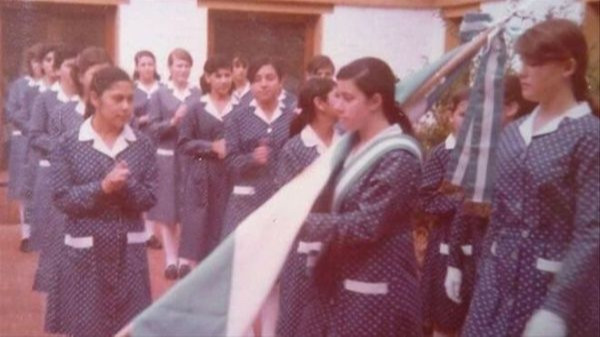
The Vatican's Congregation for the Doctrine of the Faith opted to reorganize the structure of Opus Dei in the southern part of the continent in response to the denunciation of women. | Photo: Religión Digital
Rome, October 10 (RHC)-- Opus Dei, an organization of the Catholic Church, has not responded to a complaint made by 43 women about human trafficking and slavery, ignoring the accusations made against them.
Instead, they made a decree that preceded the denunciation made at the beginning of September of this year, with substitutions in the apostolic structure with the supposed objective of "improving the momentum and coordination of the work."
That was the reaction to the fact that a group of 43 women from Argentina, Uruguay, Bolivia and Paraguay, denounced last September the Institute of Integral Training in Domestic Studies (ICIED), of Opus Dei, for human trafficking and slavery, facts occurred between 1974 and 2015.
The filing of the complaint was formalized in Argentina with women from the four countries involved, who served the institution as auxiliary numeraries, the lowest-ranking members, and who performed domestic service tasks in those countries and some of them also in Italy and Kazakhstan.
In almost 30 pages, the written denunciation recounts in detail the way in which Opus Dei recruited these women from families of what they called a humble socio-cultural and economic context when they were adolescents between 12 and 16 years old.
The denunciation details that there was a proselytizing plan and that they did it with the knowledge and consent of the people who held the powers of organization and control of the Prelature of the Holy Cross and Opus Dei in the respective territory, in an organized and lasting manner over time, with distribution of tasks or functions, and with a very similar repeated sequence among all the victims.
According to the complainants' accounts, they never spoke to them about a religious vocation when they went to look for them, all the families were told that they were going to take them to study, and although several were taken to the ICIED, many were sent directly to work in Opus Dei centers and residences.
Once incorporated as auxiliary numeraries, they were involved in what the complainants call a situation of exploitation of which they themselves were unaware because of their young age, feeling obliged to provide such services in payment of the debt incurred for the transfer, accommodation and the fictitious studies whose hope of realization they constantly harbored.
However, Opus Dei's response was to reorganize the structure of the organization in the South American region and ignore the denunciation made to the Vatican.

